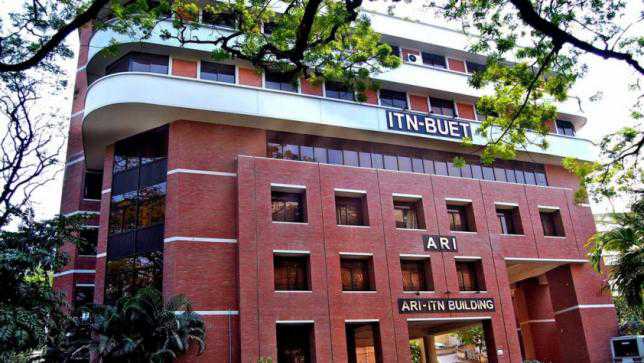Rethinking engineering education in Bangladesh

During the twentieth century, engineering education in the developed countries underwent a remarkable transformation. Unfortunately, engineering education in Bangladesh has changed little though many new engineering fields were created since the emergence of Bangladesh as an independent country in 1971. In 1971, there were only five established engineering fields—civil, mechanical, electrical, chemical and metallurgical; the next five decades saw the creation of computer science and engineering (CSE), industrial and production engineering, naval engineering, water resources engineering, glass and ceramics engineering, petroleum and mineral resources engineering, biomedical engineering, mining engineering, genetic engineering and biotechnology, textile engineering, leather engineering and environmental engineering. Also, universities offering engineering programmes have grown rapidly since 1971 to produce engineers who could build complex technological systems and contribute to the economic development of the country.
Bangladesh University of Engineering and Technology (BUET) is the oldest engineering university in Bangladesh. Students who perform well in HSC come to this university to study engineering fields. But BUET has not been recognised as a world-class education provider. The education system at BUET is very traditional, with very little group work or practical work; the university has not changed the promotion criteria of faculty, endorsing good teachers for promotion. On the other hand, the world's most prestigious higher education institution, MIT in the US, is continuously changing teaching and learning techniques and promotion criteria (MIT report, March 2018). Why have changes in the teaching and promotion criteria become so important? Because, people in the business world are repeatedly telling us that the jobs of the future have not even been created yet, thus students need to know how to think, adapt, work together, and communicate.
Accordingly, the young population has to be equipped with the right set of skills to make them employable in the fast-changing job market. For this reason, the education system (mostly traditional in nature) that we have for our youths needs to be revamped. Universities should target education designed for the industries of the future rather than the industries of the past. Therefore, undergraduate engineering education practiced at the undergraduate level needs renovation aimed at: (i) an educational approach that is underpinned by design synthesis and innovation; (ii) educational delivery that integrates effective and appropriate modern pedagogical approaches, supported by a flexible curriculum, and (iii) an educational structure that reflects the challenges facing engineering in the 21st century.
The most important change that we could make to engineering education to strengthen its role in society is to be increasingly sensitive to the needs of the students, and the skill sets that they will require to face the challenges ahead. Today's pedagogy is teacher-centred, not student-centred, as it should be.
The scholarly work going on in engineering education is not translated back into the lecture room. It is always theoretical. Our students are now fully aware of what is going to be needed from them in the future, and the skill sets that they are going to need. So, we should come alongside them in our education, giving them those skill sets. The curricula should emphasise the importance of student choice, multidisciplinary learning, and its societal impact so that the students are exposed to a breadth of experiences outside the classroom, outside the traditional engineering disciplines and across the world. The globally accepted guideline for preparing curriculum is that the curriculum of an engineering programme is designed targeting some predetermined Program Educational Objectives (PEOs). Each has its own course learning outcomes (CLOs). The new curricula of undergraduate programmes call upon students to engage in exploratory and open-ended problem-solving and address challenges that affect multiple disciplines.
Universities such as Singapore University of Technology and Design (SUTD), Pontifical Catholic University of Chile (PUC), Charles Sturt University (Australia), University College London (UK), Delft University of Technology (Netherlands), and Olin College of Engineering (USA) have been identified as emerging leaders from across the world (MIT report, March 2018). Those universities conduct their academic programmes aligning the goals of national governments and higher education, delivering student-centred learning to large student cohorts, and setting up faculty appointment and promotion systems that better reward high-quality teaching. They are successful in integrating student-centred learning with a curriculum oriented to the pressing challenges of the 21st century—societal, environmental, and technological. Their governments are making major investments in engineering education as an incubator for the technology-based entrepreneurial talent that will drive national economic growth.
With an emphasis on interdisciplinary, hands-on learning and a strong connectivity with the industry, those universities also offer “a new future-oriented educational approach” designed to nurture technology-driven entrepreneurs and inspire future generations to follow careers in science and engineering. Each emerging university has nurtured an environment where creativity can flourish. The quality of its students bears testimony to the success of its approach.
SUTD was born out of the Singaporean government's vision to establish a new university that would be an engine for national economic growth, fostering talent and applied research in engineering, architecture and design. The Singaporean government engaged MIT in developing its undergraduate programmes.
The importance of engineers to any society has historically been of great importance, and that trend is only likely to increase over time. Engineers in Bangladesh can immensely contribute to the economic development of the country. If universities produce graduates with high-level skills and innovative quality, they will not only be successful at their jobs, they will also prove themselves as successful entrepreneurs and will create innovative technology-based businesses. Our universities must therefore adopt a radically different approach to undergraduate education. They may involve emerging engineering universities in developing their engineering education. However, the type of education that we want to have is expensive. The university authorities must be willing to make huge investment in developing and running new education systems. Universities also need to value teaching excellence, such as the quality and pervasiveness of faculty training in education or the extent to which education is recognised in faculty career progression.
Source: https://www.thedailystar.net